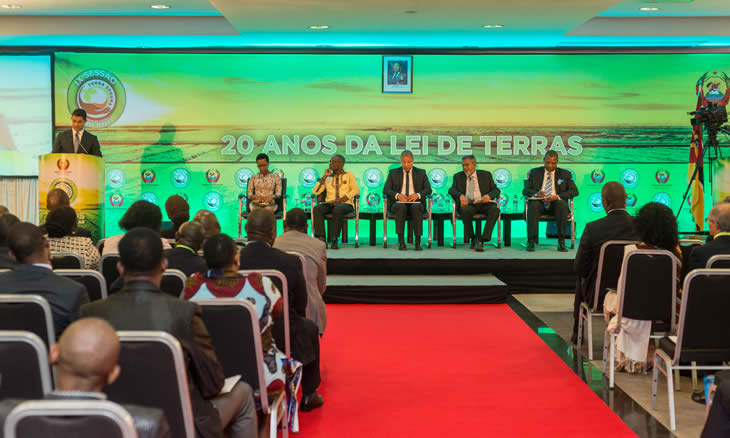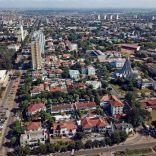Mozambique: Multi-storey housing project in Chamanculo "C", Maputo
“Land in Mozambique is in the hands of bureaucrats”

O País
Former State Administration Minister Óscar Monteiro and other members of the panel discussing “The political-legal framework of land” at the Land Consultation Forum yesterday questioned state ownership of land, as established by the Mozambican legislation.
Óscar Monteiro said that part of the land in Mozambique is in the possession of bureaucrats who take advantage of the principle that the land belongs to the state to distribute it illegally and for non-productive purposes.
In his speech, Monteiro began by questioning whether Law 19/97 and existing practices correctly interpreted the constitution as a whole and in its entirety. He questioned whether there is compatibility between constitutional provisions on land and other constitutional principles, which include development, the intangible welfare of the citizen, and the market economy.
Óscar Monteiro said that, as a rule, the bases of legislative policy derived from constitutional imperatives and, from the legal point of view, were structuring, in the sense that they refer to values and social vision on the land. The most important legislative issue is the constitutional principle of land as state property “and this is where one of the most important problems is found and I hope that in this qualified forum it will be resolved or at least begin to be resolved”, said Monteiro, before asking: “What does it mean, land as state property? Is it [land property of] the state-citizen or the state-public administration?”
The former Minister of Public Administration was pointing out that the owner of the land is no longer the state taken in its entirety, and which, in the past, was not opposed to society (unlike modern Western society, where the state is a force against which society struggles, and not the state taken as the main instrument of defending the interests of society, as in previous generations).
“It’s not the governors, it’s not the state officials who own the land. This problem is not new. It has been happening for several years in our country and it has been observed in several countries that have adopted the same path,” Monteiro said.
Land registration has to be as fast as possible
It is Monteiro’s understanding that three achievable goals should emerge from the forum, namely, how to ensure that land registration is done as soon as possible, as a guarantee of stability.
Law expert Alda Salomão understands that the land law and national land policy are well-designed instruments, but then fail for not being effectively implemented. She says that discussions about the identity of the state, the transmissibility of land and the concept of public ownership of land are not new and, therefore, debates have to produce practical results in the transformation of approaches. Salomão’s proposal is to discuss how to best implement what you have today, and to start giving concrete signs of improvement today.
Another lawyer, André Calengo, is in favour of the creation of a basic law, since the Land Law, which dates from 1997, is mismatched in relation to other related regulations subsequently approved such as territory planning law and environmental law, as well as laws concerning forests and fauna, which have preempted the Land Law. That is, there is no law that coordinates the others in terms of principles and certain provisions that may work as bases.
Representing the Confederation of Economic Associations of Mozambique, Bruno Vedor argued that it was not only the government’s responsibility to carry out reforms in the laws, and the private sector was also responsible.
By Celso Chambisso












Leave a Reply
Be the First to Comment!
You must be logged in to post a comment.
You must be logged in to post a comment.